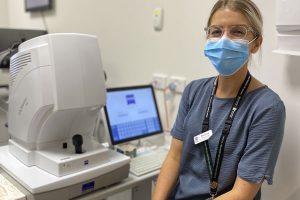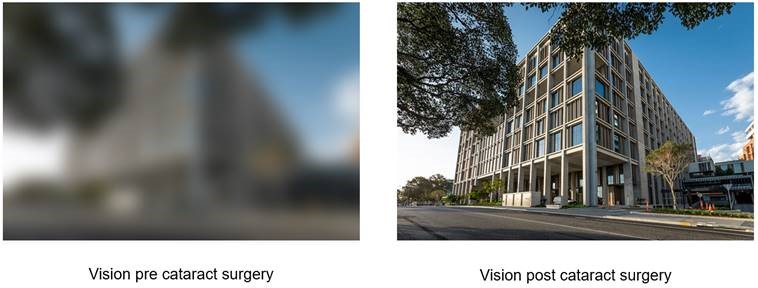
STARS Senior Orthoptist Breanna Ban
Everyone has heard of an optometrist, and you might have heard of an ophthalmologist, but have you ever heard of an orthoptist?
According to STARS Senior Orthoptist Breanna Ban, orthoptists are relatively rare clinicians with approximately 800 of them working in Australia.
“Orthoptists are allied health professionals that specialise in the assessment, diagnosis and non-surgical management of eye disorders,” Breanna explained.
“Traditionally orthoptists were involved purely in the management of patients with eye movement disorders such as double vision and lazy eyes however as the scope of practice has evolved orthoptists now also specialise in the care of patients with a range of eye conditions.
“At STARS the orthoptists work primarily with patients referred for cataracts and pterygiums, but orthoptists can also work with a variety of patients with eye conditions including glaucoma, diabetic eye disease, age related macular degeneration, retinal disorders, eye movement disorders and more.”
The STARS ophthalmology department has a wide range of state-of-the-art equipment, including machines that measure eye dimensions in preparation for cataract surgery and machines that scan 3D through the back of the eye to screen for any retinal pathology.
STARS even has an ultrasound machine where the orthoptist instils anaesthetic eyes drops and places a probe on the eye to cross check measurements or to screen for other eye health conditions.
“It’s incredibly rewarding to be a part of a team that is involved in reversing blindness in patients with advanced cataracts,” Breanna said.
“It’s fulfilling to be the clinician that removes the patient’s eye pad the day after surgery to reveal a whole new world of sight.”
| What’s the difference? | |
|---|---|
| Orthoptist | Orthoptists may work independently, in conjunction with ophthalmologists or in a variety of multidisciplinary teams.
Wide scope of practice depending on workplace setting. Within a hospital an orthoptist performs preliminary diagnostic testing prior to the patient seeing an ophthalmologist. |
| Optometrist | Primary care practitioner who examines eyes, gives advice on visual problems, and prescribes and fits glasses or contact lenses.
Optometrists refer patients to a specialist for further management such as an ophthalmologist. |
| Ophthalmologist | Medical doctor who has undertaken additional specialist training in the diagnosis and management of disorders of the eye and visual system.
Prescribe medication and perform surgical procedures in the management of eye disease. Often, an orthoptist and ophthalmologist will work collaboratively together in investigating and managing diseases of the eye. |
Below is an example of the level of vision a patient may present with in our department before and after undergoing cataract surgery at STARS.
